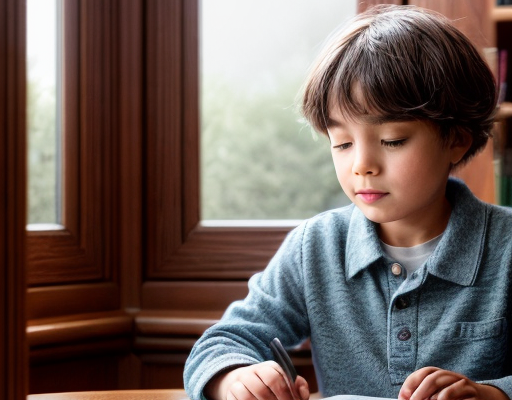
Teaching Your Kids to Manage Conflict Peacefully
“`html
Teaching Your Kids to Manage Conflict Peacefully
Introduction to Conflict Management for Kids
Children are naturally inquisitive, expressive, and can sometimes clash with their peers or siblings. Teaching kids to manage conflicts peacefully is essential for their development and future relationships. In this article, we will explore practical ways parents can guide their children towards resolving disputes calmly and respectfully.
Understanding Conflict in Childhood
Conflict among children can arise from misunderstandings, differing needs, or simply not knowing how to communicate effectively. It’s important for parents to understand that conflict is a natural part of growing up, and it provides an opportunity for kids to learn valuable social skills.
Leading by Example
Children learn a great deal by observing their parents. When parents handle their disagreements in a constructive and non-aggressive manner, they set a powerful example for their kids. Demonstrating negotiation, empathy, and listening are key behaviors for kids to emulate.
Emotional Intelligence and Its Role
Emotional intelligence is the ability to recognize, understand, and manage one’s own emotions, as well as the emotions of others. Teaching kids to acknowledge and express their feelings appropriately is a foundational step in conflict resolution.
Communication Skills for Conflict Resolution
Good communication is crucial in managing disputes. This includes teaching children to use “I” statements to express how they feel, active listening to understand others, and being clear and direct without being hurtful.
Utilizing “I” Statements
Encourage kids to frame their issues as personal feelings rather than accusations (e.g., “I feel upset when…”), which can help de-escalate potential conflicts.
Active Listening Techniques
Teach children to listen without interrupting and to repeat what they’ve heard to ensure they’ve understood the other person’s point of view.
The Importance of Apologizing
Instruct kids on the significance of apologizing sincerely when they have wronged someone. Apologizing is not just about saying sorry; it’s about acknowledging the impact of their actions and committing to change.
Problem-Solving Strategies
Equip children with problem-solving tools. This can include identifying the problem, thinking of possible solutions, weighing the pros and cons of each, and agreeing on a solution together.
Brainstorming Solutions Together
Encourage children to work together to come up with mutually beneficial solutions. This promotes teamwork and compromise.
Teaching Tolerance and Respect
Tolerance and respect for others, even in disagreements, are essential values children should practice. This includes understanding that it is okay to have different opinions and that everyone deserves respect.
Setting Boundaries and Expectations
It’s important for kids to know what behavior is acceptable and what isn’t. Parents should establish clear rules about respectful behavior and enforce them consistently.
Role-Playing Scenarios
Role-playing can be a fun and effective method to help children practice conflict resolution. Through acting out scenarios, kids can explore different strategies and outcomes in a safe environment.
Involvement in Sports and Group Activities
Participation in group activities and sports can naturally teach children about cooperation, team spirit, and dealing with conflicts. The experiences from these settings are invaluable life lessons.
Seeking Help When Needed
It’s crucial for children to recognize when a conflict is beyond their ability to resolve and know that asking for help is not a sign of weakness. Teaching them to reach out to a trusted adult can help resolve issues that are too complex for them to manage alone.
Reinforcement and Recognition
Praise and acknowledge when children effectively manage a conflict. Positive reinforcement not only boosts their confidence but also encourages them to continue using peaceful conflict-resolution methods.
Handling Unresolved Conflicts
Sometimes conflicts may not be easily resolved, and that is okay. Teaching children that not every conflict has a clear solution and that sometimes agreeing to disagree is a resolution in itself.
Conclusion: A Lifelong Skill
Conflict management is a skill that children will use throughout their lives. By teaching them to manage disputes peacefully and with respect, parents equip their children with the tools to build strong, healthy relationships and to navigate the world as empathetic, understanding individuals.
“`

